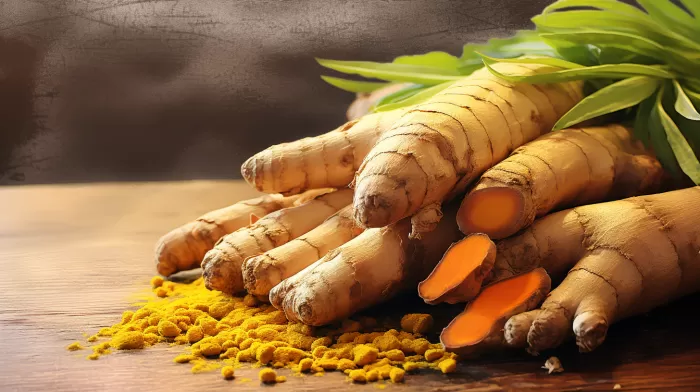Indian food, with its abundant use of turmeric and other thermogenic spices, holds a secret that can help fight inflammation and reduce pain. Turmeric is derived from a root similar to ginger and is the main ingredient in various Indian dishes. Its effective component, curcumin, not only assists the body in healing but also prevents several chronic, serious health conditions such as heart disease. Over 5,500 peer-reviewed clinical studies support the numerous benefits of curcumin, which has shown to be a safer and equally effective alternative to several prescription medications.
Curcumin: An all-natural inflammation buster
Inflammation is the body’s healthy response to injury, stress, and infection but often leads to chronic and serious health conditions when it persists. Research demonstrates turmeric’s powerful anti-inflammatory, anti-tumor, and antioxidant properties that can effectively mitigate inflammation.
Lab animals prone to multiple sclerosis showed very few symptoms after being administered curcumin. Similarly, curcumin was found to protect against alcohol’s damaging effects on the liver and harmonize stomach and digestion while countering genetic damage that leads to cystic fibrosis, a lung disorder.
Comparing curcumin to pharmaceutical drugs
Turmeric has been found to be as effective and, in some cases, safer than many prescription medications, making it a potent alternative for treating several health conditions. A study published in 2008 noted that NCB-02, a standardized preparation of curcuminoids, had a comparable effect to atorvastatin (Lipitor) in lowering cholesterol.
Moreover, a 1999 study revealed that curcumin compared favorably to steroids in managing chronic inflammatory eye disease known as anterior uveitis. The lack of side effects was pointed out as curcumin’s most significant advantage over corticosteroids. Lastly, curcumin demonstrated antitumor, anti-inflammatory, and antioxidant properties in lab tests and was found to inhibit a wide range of cancers, including mammary, duodenal, colon cancer, and TPA-induced skin tumors.
Safer option for pain and inflammation
Since the curcumin component in turmeric is both an anti-inflammatory and antioxidant agent, it has been used to treat a variety of conditions, such as wounds, digestive disorders, liver issues and arthritis. Unlike drugs like ibuprofen and aspirin, curcumin doesn’t strain or damage the kidneys and liver, making it a safer option to reduce inflammation and pain. Turmeric, thanks to its curcumin component, has been shown to alleviate symptoms associated with various conditions like arthritis, sports injuries, irritable bowel syndrome, Crohn’s disease, tendonitis, autoimmune diseases, asthma, inflammatory bowel disease, and cancer.
Incorporating turmeric into the diet
To take advantage of the abundant health benefits of turmeric, aim to incorporate it into everyday meals. Sprinkle turmeric into smoothies, soups, and salad dressings, or use it to season veggies, chicken, or seafood. A soothing cup of warm turmeric milk can serve as a healthy alternative to coffee or tea, while golden turmeric paste can be easily made at home and added to a variety of dishes.
Turmeric, and more specifically its main component curcumin, offers an extensive range of health benefits that can improve overall well-being, making it an essential addition to any diet. With its powerful anti-inflammatory and antioxidant properties, turmeric is not only a potent alternative to pharmaceutical drugs, but a safer and more natural remedy for many common health conditions.



